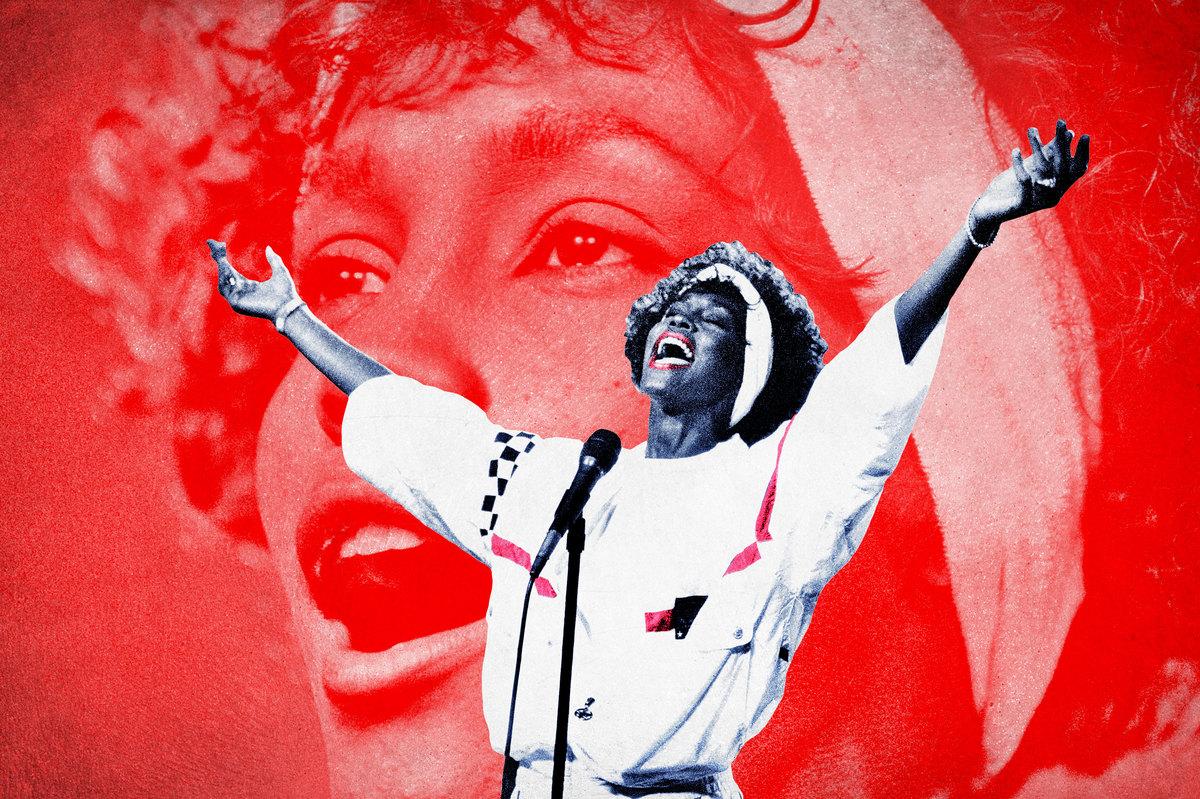The Soaring Legacy of Whitney Houston’s Super Bowl National Anthem
Thirty years ago, the legendary singer stood before the country and delivered the most iconic rendition of the “The Star-Spangled Banner” in modern history. On the first episode of our new show ‘Black Girl Songbook,’ Danyel Smith explores the performance and Whitney’s lasting impact with help from Deborah Cox.
Welcome to Black Girl Songbook. Join author and former Vibe editor-in-chief Danyel Smith as she celebrates and uplifts the talents of Black women in the music industry. Tune in for in-depth discussions with your favorite songwriters, producers, and artists, as well as anecdotes from Danyel. Plus, you’ll hear the songs of Black women who changed the landscape of American music forever. Below is an excerpt from Episode 1, which discusses Whitney Houston’s legendary national anthem performance at Super Bowl XXV and the late singer’s indelible legacy with help from singer-songwriter Deborah Cox.
In ’91, I was living in Oakland, writing about local Bay Area artists like En Vogue, Digital Underground, Too Short, MC Hammer—and working at a department store. I did not know I would end up working in music for my whole life. Didn’t know I would end up working at ESPN. And so I was not sitting up watching the Super Bowl—especially since it was an all–New York state game, Bills vs. the Giants. I was likely working that Sunday because back then the store paid time and a half. So I don’t even think, in real time, that I knew Whitney Houston was singing the national anthem. That came later, when her version of “The Star-Spangled Banner” actually became a top 10 pop hit. Radio jocks were literally playing it from tapes made from the television broadcast. By February it was a proper Arista Records release, with all proceeds going to a charity of Houston’s choice. Eventually the song was certified platinum.
I was a Whitney Houston fan from the moment of her 1985 second single, “Saving All My Love For You.” And throughout her complex career, I have never stopped being a Whitney Houston fan. I met her for the first time in 1995, for a Vibe cover story—the pinkish-lavender issue with the cover line: “Whitney: Sitting Pretty and Standing by Her Man.” This was the Whitney loves Bobby era. She was around 35. This was the pre–“Heartbreak Hotel” era.
But in 1991, Houston was 27 when she sang “The Star-Spangled Banner” at Super Bowl XXV. She was already the first artist in history to have seven consecutive singles go to no. 1. She was still in the spring of her career. A lot was to come. Houston had yet to appear on-screen in and on the soundtracks of 1992’s The Bodyguard, 1995’s Waiting to Exhale, and 1996’s The Preacher’s Wife. And just listing her data points, reciting her résumé, does not do her justice.
It doesn’t quantify, because there is no quantifying, the influence Houston continues to have on Beyoncé Knowles-Carter, Adele Adkins, Alicia Keys, Lady Gaga, and other pop singers who rose in her wake. It can’t articulate the profound relief she granted Black teens in the mid-1980s. Just the sight of her, onstage, on MTV, on an album cover—Houston was proof of life. It became easier for Black girls in particular to flex, to breathe—to revel in visibility and possibility.
Whitney actually had some practice for her Super Bowl XXV performance. In a demure little fur hat and with a case of nerves, Houston sang the national anthem at a Nets-Lakers game in New Jersey early in Kareem Abdul-Jabbar’s 1988-89 retirement season.
As you can hear, the PA system, the public address system cannot hold her. She actually stops singing all the way out, because she’s too much for the system, and for the room. If you were standing near her though, you could hear her epic voice. “You have to hear that woman sing it to believe it,” the announcer said after she finished. “Beautiful, talented, gracious.”
Even though the performance took place indoors, it’s a window into the acoustic wilderness that is singing in an outdoor arena. This is the story of Whitney singing that day, at Super Bowl XXV.
To hear the full episode, click here, and be sure to subscribe on Spotify for new episodes every Thursday. This excerpt has been edited and condensed.